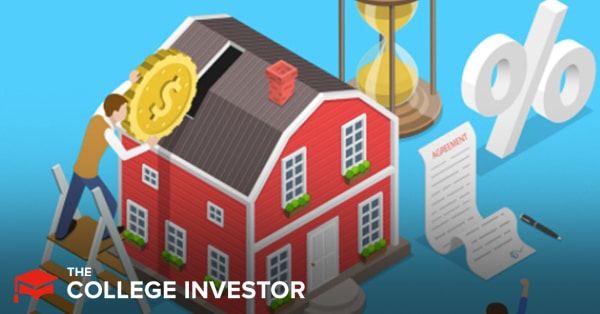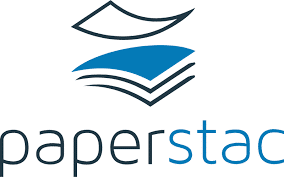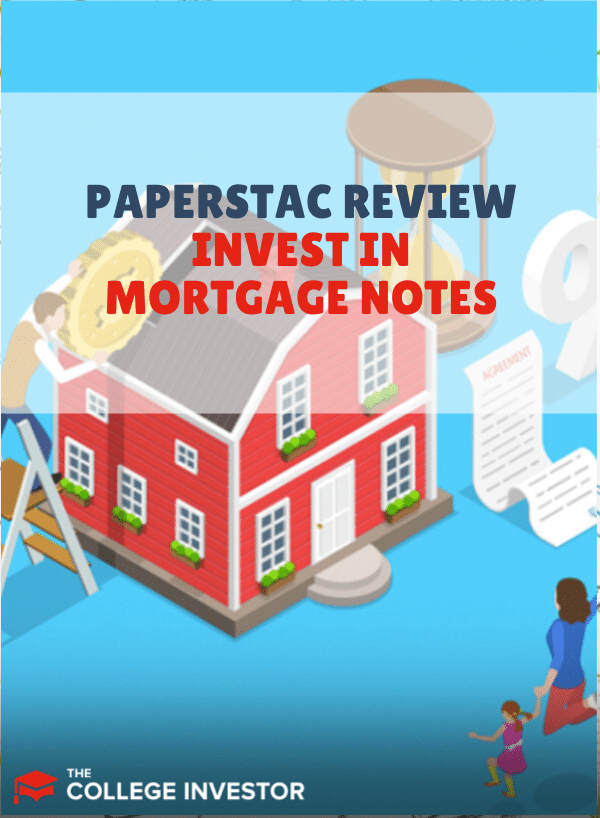
Paperstac is a digital platform that links mortgage note buyers and sellers and facilitates the transactions of this investment asset. Although it is a relatively new technology, it is bringing a much needed marketplace to an investment class that has historically happened through handshake deals or among a few knowledgeable investors.
With Paperstac, nearly the entire mortgage note shopping and purchasing process can be handled online. Investors can filter available mortgage notes by property value, type, state, interest rate, loan-to-value ratio, and more. Paperstac also offers eNotarization and eSignature services and can even handle the escrow for the transaction.
While the democratization of mortgage note investing will be a boon for some investors, it isn’t ideal for everyone. In this review we explain what Paperstac does and how you can invest in mortgage notes through the platform.
Related: How To Get Started In Real Estate Investing With Just $500
Paperstac Details | |
|---|---|
Product Name | Paperstac |
Investment Type | Mortgage Notes |
Investor Type | Accredited and Non-Accredited Investors |
Transaction Fee | 1% |
Promotions | None |
What Is Paperstac?
Paperstac is an online platform that allows mortgage note investors to buy and sell mortgage notes digitally. In addition to providing an open inventory of note listings, investors can complete the mortgage note transaction digitally and with security including escrows, audits, and notaries.
The seamless digital experience is really Paperstac’s selling point. Buyers and sellers can interact directly through Paperstac, or they can connect offline during the transaction.
What Is A Mortgage Note?
If you've bought a house, you are probably familiar with a mortgage loan. This loan gives buyers the money to purchase a house in exchange for a promise to pay the loan back. A mortgage note lays out the terms and conditions of repayment for a mortgage.
Most lenders either sell their loans to government-backed lenders like Fannie Mae and Freddie Mac or choose to keep them in-house. But lenders can also choose to sell their loans on a secondary market to real estate investors.
Real estate investors like buying mortgage notes because they're considered low-risk investments. On one hand, the investor is guaranteed a steady stream of income from the home owner's monthly mortgage payments. And, on the other hand, if the borrower defaults, the investor can foreclose and take full possession of the home.
How Is Mortgage Note Investing Different Than Real Estate Investing?
When you invest in real estate, you are directly buying a property. When you buy a mortgage note, you don’t have a direct claim to the property. You are buying access to an ongoing stream of payments and you only have rights to the property if the borrower defaults.
This difference means that real estate investors are the ones who are best positioned to take advantage of market appreciation. However, real estate investors who take out a mortgage when buying a property can also be foreclosed on if they fail to make payments.
While mortgage note owners are not able to sell the underlying property for a profit, they also have the security of knowing that they can't lose it. Also, if the borrower defaults, the mortgage notes investor will take possession of the property and could choose to sell it for an additional profit.
Because mortgage note investing involves real estate, it's important for investors to understand what makes a good real estate deal. They need to understand how much a property is worth in its given state. On top of that, they add layers of diligence around whether a note is likely to perform and how much a property is worth.
How Does Paperstac Help Investors Buy Mortgage Notes?
When investors look at a listing on Paperstac, they can gain access to all the critical information about the mortgage note and the property securing the note. Since many of the notes on Paperstac are “nonperforming” meaning the borrower is behind on payments, it's important for investors to conduct due diligence on the value of the property and the value of the note itself.
As someone who has not invested in mortgage notes, I was pleasantly surprised by the amount of free digital resources that Paperstac provides to help investors decide whether a deal is valuable. They provide different evaluation methods for people who are hoping to “flip” notes by turning non-performing loans into performing loans.
Paperstac also offers tips and best practices for people who want to buy ongoing payment streams on performing loans. Finally, they offer advice for investors whose main goal is to get the underlying property at a substantial discount.
Who Can Invest In Mortgage Notes Through Paperstac?
You do not need to be an accredited investor to buy or sell notes through Paperstac. Here's what that means. However, non-accredited investors may be limited to investing no more than 10% of their annual income or net worth. Paperstac is available to investors worldwide.
Investors can buy mortgage notes through Self-Directed IRAs and Paperstac says that 26% of notes on the site are purchased through these IRAs. Their Self-Directed IRA partners include Alto IRA, Advanta IRA, CamaPlan, and Entrust Group among others.
What Are The Risks Associated With Investing In Paperstac?
One of the major risks associated with mortgage note investing is that it's difficult for investors to become well diversified.
When you buy a mortgage note, you are buying a single asset backed by a single property. Once you own the note, it’s up to you to enforce payment, enforce foreclosure or otherwise deal with the note and the property itself. And if you’ve only got $10,000 to invest, you may struggle to buy even one mortgage note.
However, Paperstac's sister company, MWMFund, does try to solve this diversification problem by offering a Regulation A+ mortgage note fund. MWMFund's shares are available to both accredited and non-accredited investors and have a low $200 minimum buy-in.
The biggest risk is simple that investors can lose all the money they invest through Paperstac (investment goes to zero). But by offering third-party collateral audits, Paperstac is able to provide a fair amount of security against the risk of fraud or theft.
Is It Worth It?
Unlike many alternative assets, mortgage note investing seems to have a very straightforward appeal. Investors can buy notes to collect payments, to flip the note, or to claim the underlying property. There are nuances that investors need to understand, but prospective investors can find solid education on Paperstac as well as other sites.
Despite these advantages, I still see mortgage note investing as a risky investment for most people. It seems that successful investors really make a business out of note investing, and it isn’t a passive form of wealth building. If you aren’t willing to put in the time to learn a new business model, it's probably safer to stick to traditional real estate investing or other investments like stocks, bonds, or REITs.
Paperstac Features
Investment Type | Mortgage Notes |
Investor Type | Accredited and Non-Accredited Investors |
Funding Type |
|
Fees |
|
Included Services |
|
Listing Type |
|
Note Type |
|
Customer Service Number | 407-930-9749 |
Customer Service Email | hello@paperstac.com |
Mobile App Availability | No |
Self-Directed IRA Partners |
|
Promotions | None |
Paperstac Review
-
Pricing and Fees
-
Ease of Use
-
Customer Service
-
Products and Services
-
Diversification and Risk Management
Overall
Summary
Paperstac is a platform that allows investors to buy or sell mortgage notes completely online with security and transparency, including digital processes for escrows, audits, and notaries.
Pros
- Easy access to $20.4 million of mortgage note inventory
- Doc prep and generation, shipping, holding of collateral, and collateral audit included in transaction fee
- Escrow is totally free on transactions exceeding $100k
Cons
- 1% transaction fee (charged to both the buyer and seller)

Robert Farrington is America’s Millennial Money Expert® and America’s Student Loan Debt Expert™, and the founder of The College Investor, a personal finance site dedicated to helping millennials escape student loan debt to start investing and building wealth for the future. You can learn more about him on the About Page or on his personal site RobertFarrington.com.
He regularly writes about investing, student loan debt, and general personal finance topics geared toward anyone wanting to earn more, get out of debt, and start building wealth for the future.
He has been quoted in major publications, including the New York Times, Wall Street Journal, Washington Post, ABC, NBC, Today, and more. He is also a regular contributor to Forbes.
Editor: Clint Proctor Reviewed by: Chris Muller

